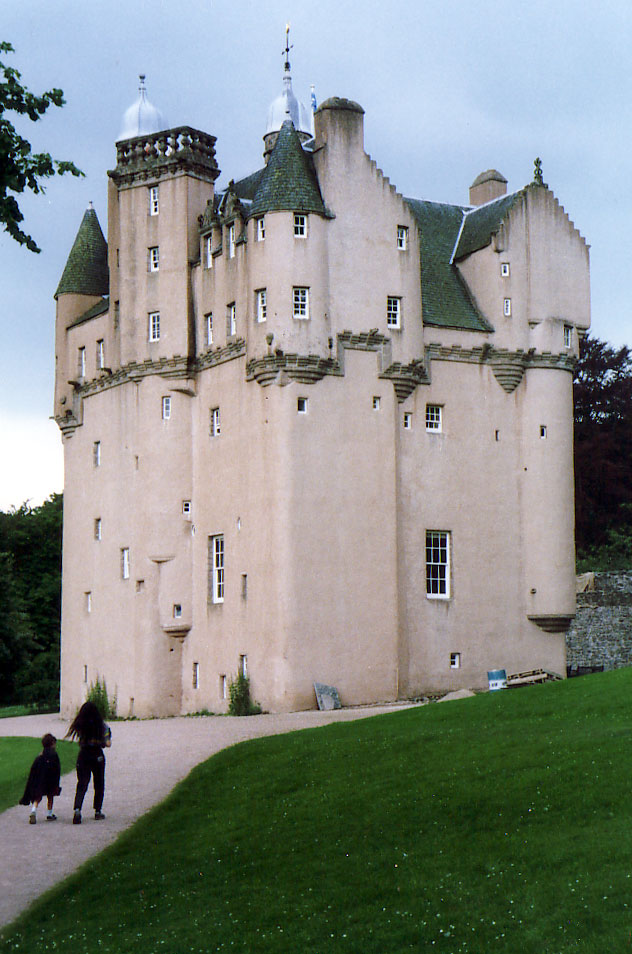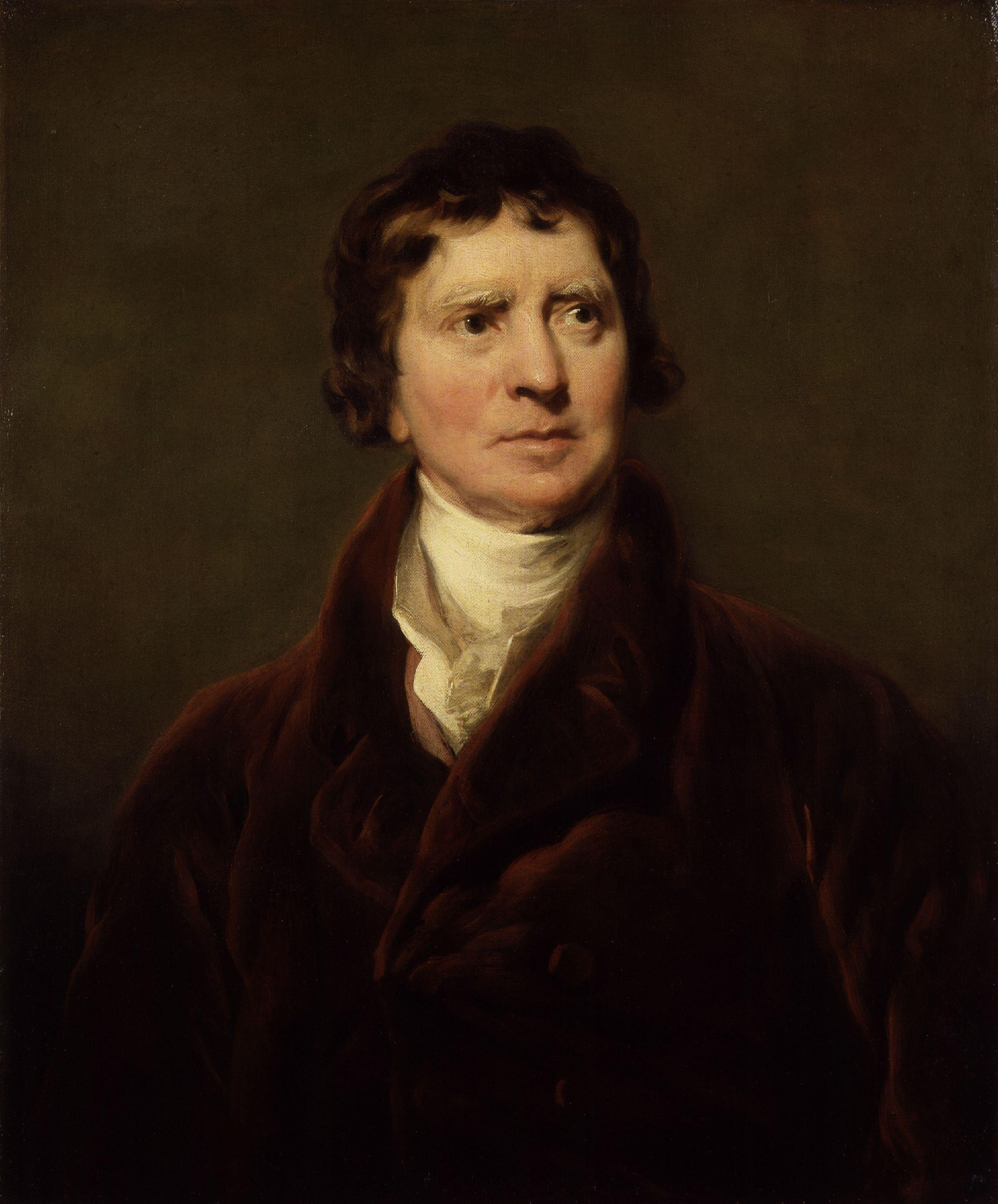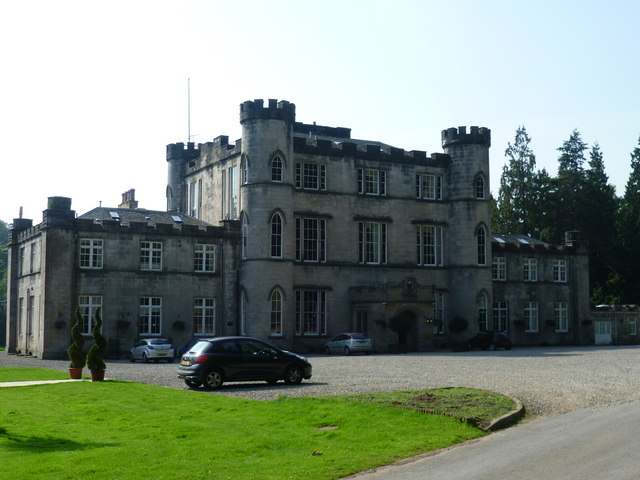|
Melville Castle
Melville Castle is a three-storey Gothic castellated mansion situated less than a mile (2 km) west-south-west of Dalkeith, Midlothian, near the North Esk. History An earlier tower house on the site was demolished when the present structure, designed in 1786–1791 by James Playfair for Henry Dundas, 1st Viscount Melville, was built. The original tower house was owned by the Melville family, before passing to Sir John Ross in the 14th century. It subsequently changed hands with the attached lands several times and was sold to David Rannie in 1705. It then passed to Henry Dundas through his marriage to the daughter of David Rannie, Elizabeth Rannie. The Castle was owned by the Dundas family until after the Second World War, when the ninth Lord Melville moved to a smaller house on the estate and the castle was leased as an army rehabilitation centre and then later as a hotel. By the early 1980s, the hotel fell into disrepair and was unoccupied. In the late 1980s, the esta ... [...More Info...] [...Related Items...] OR: [Wikipedia] [Google] [Baidu] |
Melville Castle By Night
Melville may refer to: Places Antarctica *Cape Melville (South Shetland Islands) *Melville Peak, King George Island * Melville Glacier, Graham Land * Melville Highlands, Laurie Island * Melville Point, Marie Byrd Land Australia *Cape Melville, Queensland * City of Melville, Western Australia, the local government authority * Electoral district of Melville, Western Australia * Melville Bay, Northern Territory *Melville Island, Northern Territory *Melville, Western Australia, a suburb of Perth Canada *Melville, Saskatchewan, a city *Melville (electoral district), Saskatchewan, a federal electoral district *Melville (provincial electoral district), Saskatchewan *Melville, a community within the town of Caledon, Ontario *Melville Peninsula, Nunavut *Melville Sound, Nunavut *Melville Island (Northwest Territories and Nunavut) *Melville Island (Nova Scotia), in Halifax Harbour *Melville Cove, Halifax, in Halifax Harbour *Melville Island, a small island in the Discovery Islands, Briti ... [...More Info...] [...Related Items...] OR: [Wikipedia] [Google] [Baidu] |
Melville Family
Melville is a surname and a given name. The surname has two different origins: Scottish and Irish. In Scotland, the name is a habitational name, originally of Norman origin, derived from any of several places called Malleville in Normandy. The place name Malleville is derived from the Latin elements ''malum'' ("bad") and ''villa'' ("country house"). In Ireland, the surname is an Anglicisation of the Gaelic Ó Maoilmhichíl, which means "descendant of Maoilmhichil". The Gaelic personal name Maoilmhichil means "devotee of (Saint) Michael". The surname is sometimes spelled without the terminal "e": Melvill. The given name originates from England and Scotland. The name is derived from the Scottish surname. Melville or Melvill may refer to: People Surname * Alan Melville (1910–1983), South African cricketer *Alan Melville (writer) (1910–1983), English playwright and composer * Alex Melville (other) * Alexander Gordon Melville (1819–1901), Irish anatomist * Alexand ... [...More Info...] [...Related Items...] OR: [Wikipedia] [Google] [Baidu] |
Inventory Of Gardens And Designed Landscapes
The ''Inventory of Gardens and Designed Landscapes in Scotland'' is a listing of gardens and designed landscapes of national artistic and/or historical significance, in Scotland. The Inventory was originally compiled in 1987, although it is a continually evolving list. From 1991 it was maintained by Historic Scotland and Scottish Natural Heritage, and is now updated by a dedicated team within Historic Environment Scotland. As of 2016 the Inventory includes over 300 sites across Scotland. Background Unlike listed building status, there is no statutory basis for the Inventory, and inclusion of a site on the Inventory does not offer any legal protection. However, under the Town and Country Planning (Development Management Procedure) (Scotland) Regulations 2013, planning authorities are required to consult Historic Environment Scotland on "development which may affect a historic garden or designed landscape".Historic Environment Scotland Policy Statement (2016) pp.24–26, para 2.77 Th ... [...More Info...] [...Related Items...] OR: [Wikipedia] [Google] [Baidu] |
Listed Castles In Scotland
{{disambig ...
Listed may refer to: * Listed, Bornholm, a fishing village on the Danish island of Bornholm * Listed (MMM program), a television show on MuchMoreMusic * Endangered species in biology * Listed building, in architecture, designation of a historically significant structure * Listed company, see listing (finance), a public company whose shares are traded e.g. on a stock exchange * UL Listed, a certification mark * A category of Group races in horse racing See also * Listing (other) Listing may refer to: * Enumeration of a set of items in the form of a list * Johann Benedict Listing (1808–1882), German mathematician. * Listing (computer), a computer code listing. * Listing (finance), the placing of a company's shares on the l ... [...More Info...] [...Related Items...] OR: [Wikipedia] [Google] [Baidu] |
Category A Listed Buildings In Midlothian
Category, plural categories, may refer to: Philosophy and general uses *Categorization, categories in cognitive science, information science and generally *Category of being * ''Categories'' (Aristotle) *Category (Kant) *Categories (Peirce) *Category (Vaisheshika) *Stoic categories *Category mistake Mathematics * Category (mathematics), a structure consisting of objects and arrows * Category (topology), in the context of Baire spaces * Lusternik–Schnirelmann category, sometimes called ''LS-category'' or simply ''category'' * Categorical data, in statistics Linguistics *Lexical category, a part of speech such as ''noun'', ''preposition'', etc. *Syntactic category, a similar concept which can also include phrasal categories *Grammatical category, a grammatical feature such as ''tense'', ''gender'', etc. Other * Category (chess tournament) * Objective-C categories, a computer programming concept * Pregnancy category * Prisoner security categories in the United Kingdom * We ... [...More Info...] [...Related Items...] OR: [Wikipedia] [Google] [Baidu] |
Castles In Midlothian
A castle is a type of fortified structure built during the Middle Ages predominantly by the nobility or royalty and by military orders. Scholars debate the scope of the word ''castle'', but usually consider it to be the private fortified residence of a lord or noble. This is distinct from a palace, which is not fortified; from a fortress, which was not always a residence for royalty or nobility; from a ''pleasance'' which was a walled-in residence for nobility, but not adequately fortified; and from a fortified settlement, which was a public defence – though there are many similarities among these types of construction. Use of the term has varied over time and has also been applied to structures such as hill forts and 19th-20th century homes built to resemble castles. Over the approximately 900 years when genuine castles were built, they took on a great many forms with many different features, although some, such as curtain walls, arrowslits, and portcullises, were ... [...More Info...] [...Related Items...] OR: [Wikipedia] [Google] [Baidu] |
Country Houses In Midlothian
A country is a distinct part of the world, such as a state, nation, or other political entity. It may be a sovereign state or make up one part of a larger state. For example, the country of Japan is an independent, sovereign state, while the country of Wales is a component of a multi-part sovereign state, the United Kingdom. A country may be a historically sovereign area (such as Korea), a currently sovereign territory with a unified government (such as Senegal), or a non-sovereign geographic region associated with certain distinct political, ethnic, or cultural characteristics (such as the Basque Country). The definition and usage of the word "country" is flexible and has changed over time. ''The Economist'' wrote in 2010 that "any attempt to find a clear definition of a country soon runs into a thicket of exceptions and anomalies." Most sovereign states, but not all countries, are members of the United Nations. The largest country by area is Russia, while the smallest ... [...More Info...] [...Related Items...] OR: [Wikipedia] [Google] [Baidu] |
East Indiaman
East Indiaman was a general name for any sailing ship operating under charter or licence to any of the East India trading companies of the major European trading powers of the 17th through the 19th centuries. The term is used to refer to vessels belonging to the Austrian, Danish, Dutch, English, French, Portuguese, or Swedish companies. Some of the East Indiamen chartered by the British East India Company were known as "tea clippers". In Britain, the East India Company held a monopoly granted to it by Queen Elizabeth I of England in 1600 for all English trade between the Cape of Good Hope and Cape Horn. This grant was progressively restricted during the late 18th and early 19th centuries, until the monopoly was lost in 1834. English (later British) East Indiamen usually ran between England, the Cape of Good Hope and India, where their primary destinations were the ports of Bombay, Madras and Calcutta. The Indiamen often continued on to China before returning to England via t ... [...More Info...] [...Related Items...] OR: [Wikipedia] [Google] [Baidu] |
List Of Castles In Scotland
This is a list of castles in Scotland. A castle is a type of fortified structure built primarily during the Middle Ages. Scholars debate the scope of the word "castle", but usually consider it to be the private fortified residence of a lord or noble. This is distinct from a fortress, which was not a home, although this distinction is not absolute and the same structure may have had different uses from time to time. The term has been popularly applied to structures as diverse as hill forts and country houses. Over the approximately 900 years that castles were built, they took on a great many forms. In Scotland, earlier fortifications had included hill forts, brochs, and duns; and many castles were on the site of these earlier buildings. The first castles were built in Scotland in the 11th and 12th centuries, with the introduction of Anglo-Norman influence.Lindsay, Maurice (1986) ''The Castles of Scotland''. Constable. p.17 These motte and bailey castles were replaced with the fi ... [...More Info...] [...Related Items...] OR: [Wikipedia] [Google] [Baidu] |
Second World War
World War II or the Second World War, often abbreviated as WWII or WW2, was a world war that lasted from 1939 to 1945. It involved the vast majority of the world's countries—including all of the great powers—forming two opposing military alliances: the Allies and the Axis powers. World War II was a total war that directly involved more than 100 million personnel from more than 30 countries. The major participants in the war threw their entire economic, industrial, and scientific capabilities behind the war effort, blurring the distinction between civilian and military resources. Aircraft played a major role in the conflict, enabling the strategic bombing of population centres and deploying the only two nuclear weapons ever used in war. World War II was by far the deadliest conflict in human history; it resulted in 70 to 85 million fatalities, mostly among civilians. Tens of millions died due to genocides (including the Holocaust), starvation, ma ... [...More Info...] [...Related Items...] OR: [Wikipedia] [Google] [Baidu] |
Elizabeth Rannie
Elizabeth Rannie, also known as Elizabeth Rennie, (1750–1847) was a British noblewoman who was married to Henry Dundas, 1st Viscount Melville, and was mother to Robert Dundas, 2nd Viscount Melville. Early life Elizabeth was born in Calcutta around 1750. Her father, David Rannie, was a Captain in the British merchant service, and amassed a considerable fortune in India. Her mother was Elizabeth Bayley. A younger sister, Janet, was born around 1753. In 1760, with the fortune amassed through 30 years of trading with the East India Company in Calcutta, her father purchased Melville Castle. In November 1764 her father died, aged 48, leaving the estate and a considerable dowry to Elizabeth, then aged 13 or 14, and her younger sister Janet. Her sister married Archibald Cockburn in 1768. Marriage to Dundas On 16 August 1765, Elizabeth Rannie and Henry Dundas were married; she was 14 years old, and he was 24. Through the union, Dundas acquired the Melville castle and estate, and her ... [...More Info...] [...Related Items...] OR: [Wikipedia] [Google] [Baidu] |
Henry Dundas, 1st Viscount Melville
Henry Dundas, 1st Viscount Melville, PC, FRSE (28 April 1742 – 28 May 1811), styled as Lord Melville from 1802, was the trusted lieutenant of British Prime Minister William Pitt and the most powerful politician in Scotland in the late 18th century. Dundas was instrumental in the encouragement of the Scottish Enlightenment, in the prosecution of the war against France, and in the expansion of British influence in India. Prime Minister Pitt appointed him Lord of Trade (1784–1786), Home Secretary (1791–1794), President of the Board of Control for Indian Affairs (1793–1801), Secretary at War (1794–1801) and First Lord of the Admiralty (1804–1805). His deft and almost total control of Scottish politics during a long period in which no monarch visited the country led to him being nicknamed "King Harry the Ninth", the "Grand Manager of Scotland" (a play on the masonic office of Grand Master of Scotland), the "Great Tyrant" and "The Uncrowned King of Scotland". He w ... [...More Info...] [...Related Items...] OR: [Wikipedia] [Google] [Baidu] |








